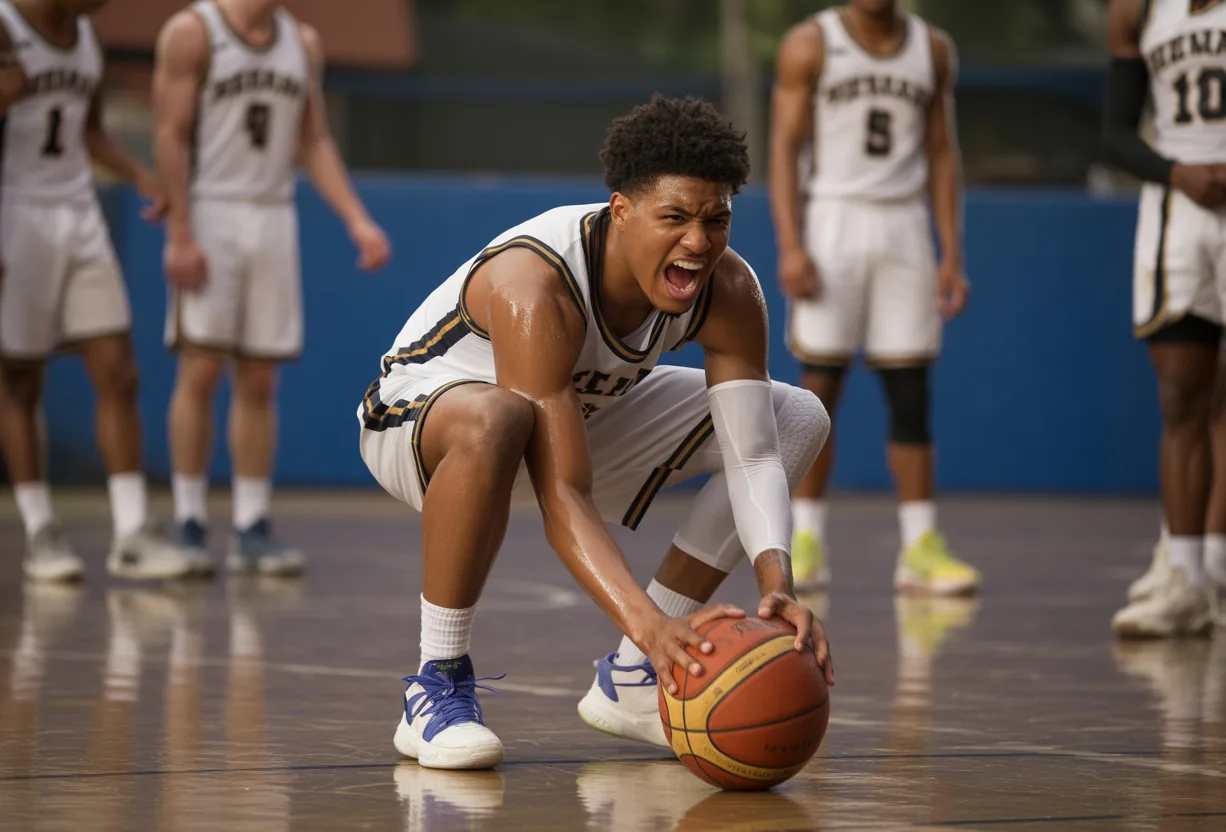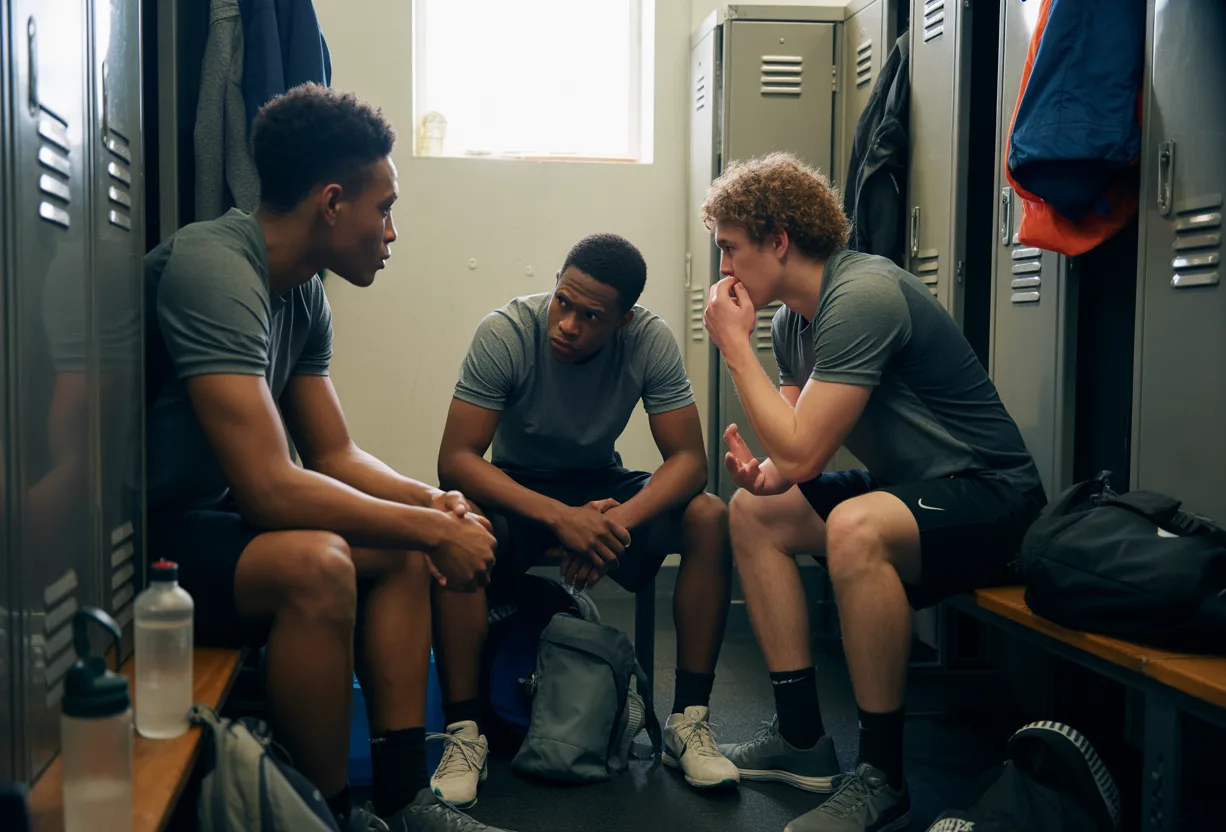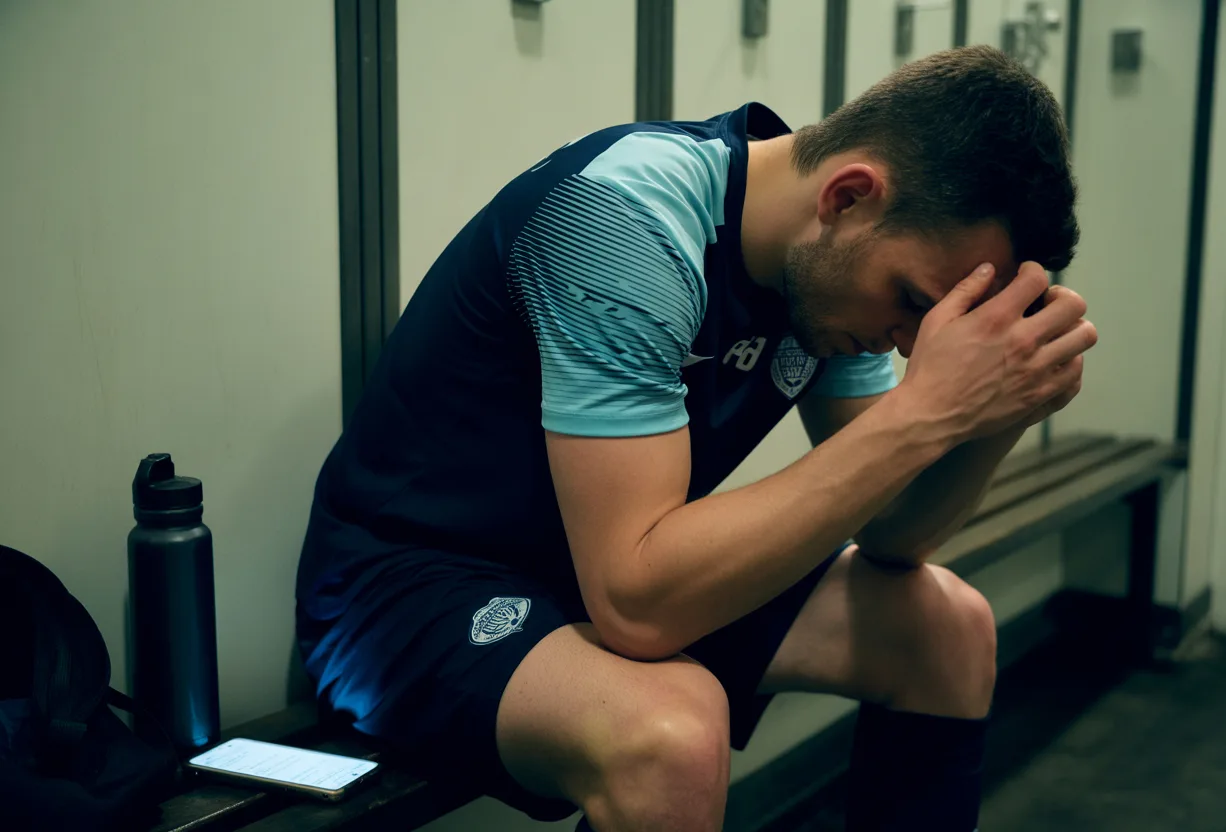When Practice Doesn’t Translate to Performance
At Revibe Therapy, we work with athletes who dominate in practice but fall apart on game day. Their parents watch in frustration, knowing it’s not a talent or toughness issue. The athlete hesitates, overthinks, and disconnects, and it’s not because they’re weak. It’s because their nervous system is running a different program under pressure.
This pattern shows up across the board: athletes freezing under stress, professionals procrastinating despite high capability, and parents feeling emotionally overwhelmed. Whether you’re on the field or in the workplace, the issue isn’t physical. It’s mental. And more specifically, emotional.
Through our Sports Psychology approach, we help clients across the country (in person and through Online Therapy) identify and rewire the hidden stress patterns that sabotage performance. In this blog, we’ll show you exactly why overthinking happens and what you can do to stop it.

Overthinking is Not Anxiety… Yet
Let’s be clear. Overthinking is not the same as anxiety. It’s a precursor. A warning sign. And it happens when the brain tries to control too many things at once:
- Did I warm up enough?
- What if I mess up?
- Is my coach watching?
- Should I play it safe or go all in?
It’s like trying to sprint while solving math equations. Overthinking takes the athlete out of their body and into their head. The mind splits into layers of fear, self-monitoring, and perfectionism. Left unchecked, that stress builds into full-blown performance anxiety.
We see this with athletes, high-achieving professionals, and students under pressure. The good news? You can reverse it. But it doesn’t start with more reps. It starts with training your focus like a skill, and that’s what we do at Revibe Therapy.
Three Reasons Athletes Overthink (and How to Rewire It)
Let’s break down what’s really happening when an athlete overthinks on game day.
1. Emotional Conditioning Was Skipped
You trained your body but not your emotional response. Practice feels safe. Games feel like war. And if you’ve never trained with your heart rate up, under real pressure, while making mistakes, your brain will freeze.
2. Focus Was Never Made a Ritual
True focus is not a feeling. It’s a trained behavior. Multitasking, notifications, and constant noise pull your athlete out of the moment. Flow comes from “T-tasking”: one thought, one action, one goal.
3. Overthinking Has a Hidden Payoff
Most athletes don’t realize this: overthinking serves a purpose. It feels like protection.
- If I stress, I’ll make fewer mistakes
- If I control everything, I won’t get judged
- If I analyze everything, I’ll be ready
But these are not strengths. They’re coping strategies. And when they stop working, it’s time to go deeper.

How to Train Emotional Focus Like a Skill
These are the exact strategies we use at Revibe Therapy, whether through Online Therapy or in-person Sports Psychology sessions.
Morning Stillness (Spiritual Grounding)
Start the day with five minutes of stillness, silence, breath, or prayer. Whether your athlete is spiritual or not, this is about grounding the nervous system before the chaos hits.
Hypnosis or Mental Rehearsal
Use guided imagery to simulate game-day pressure. This rewires your brain to stay calm and composed in high-stress situations.
The SCBG Protocol
SCBGs (Sacrificial and Compensational Behavioral Goals) are daily micro-disciplines that sharpen emotional control. You do what you resist first. Then you lift, grind, focus. This builds discipline that shows up when it matters most.
Cut the Noise
Silence the phone. Reduce distractions. Clean up sleep. Overthinking thrives in overstimulation. Attention is a muscle. Strengthen it daily.
Regression & Progression Therapy (When Needed)
If your athlete has tried it all and still freezes, it may be time to explore regression. A Sports Psychology coach can guide them back to the original emotional block, help them resolve it, and replace stress-driven motivation with sustainable, strategic confidence.

Don’t Just Train Harder, Train Smarter
Overthinking doesn’t mean you’re broken. It means you’re underprepared emotionally. And the same way you train your muscles, you can train your brain.
Start with structure. Start with stillness. Start with your SCBGs.
The mind can be trained just like the body, and when it is, everything changes.
🎥 Watch the full video here
🎯 Learn the SCBG Protocol
🧠 Explore the Emotional Patterns Chart
🌬️ Practice Diaphragmatic Breathing
💻 Book an Online Therapy Session






 Most often it is not the situation, but how we think about the situation that causes our feelings. How we think about situations is based on what we have learned and experienced in the past. Over time we may begin to react in ways that do not help us, and start feeling stuck and unhappy.
Most often it is not the situation, but how we think about the situation that causes our feelings. How we think about situations is based on what we have learned and experienced in the past. Over time we may begin to react in ways that do not help us, and start feeling stuck and unhappy. Dr. Ivey, Psy.D. completed her doctorate in Clinical Psychology with a concentration in Organizational Consulting at Pacific University’s School of Graduate Psychology in Oregon. For her dissertation, Dr. Ivey conducted qualitative research on the effects of workplace discrimination and microaggressions on minority Veterans’ overall job satisfaction with their military career. She completed the APA-accredited Psychology Internship training program and Postdoctoral Residency at the Orlando VA Healthcare System.
Dr. Ivey, Psy.D. completed her doctorate in Clinical Psychology with a concentration in Organizational Consulting at Pacific University’s School of Graduate Psychology in Oregon. For her dissertation, Dr. Ivey conducted qualitative research on the effects of workplace discrimination and microaggressions on minority Veterans’ overall job satisfaction with their military career. She completed the APA-accredited Psychology Internship training program and Postdoctoral Residency at the Orlando VA Healthcare System. I know you’re stressed and exhausted while trying to keep up with the world’s go go go trials, trying to do it all perfectly. This “hustle” mentality makes all of us prone to mistakes and poor decisions. Your mind is overthinking at such a high pace by now that you no longer know where to find the off button, or recall when you turned it on in the first place. Trust me, I’ve been there, and in that dark place is where you start to feel worried and fearful about the future because you don’t feel in control of the now. Sound familiar?
I know you’re stressed and exhausted while trying to keep up with the world’s go go go trials, trying to do it all perfectly. This “hustle” mentality makes all of us prone to mistakes and poor decisions. Your mind is overthinking at such a high pace by now that you no longer know where to find the off button, or recall when you turned it on in the first place. Trust me, I’ve been there, and in that dark place is where you start to feel worried and fearful about the future because you don’t feel in control of the now. Sound familiar? Often, when we seek support through therapy, we seem to underestimate the power of our own role in the healing process. We have all carried metaphorical luggage filled with experiences and events that have impacted our life. I know that it has been hard for you to seek support in untangling those moments from the past that now provoke stress, anxiety, frustration, anger, loneliness, sadness, guilt, depression, or hopelessness. The fact that you are reading this means that you have the intention to become the best version of yourself.
Often, when we seek support through therapy, we seem to underestimate the power of our own role in the healing process. We have all carried metaphorical luggage filled with experiences and events that have impacted our life. I know that it has been hard for you to seek support in untangling those moments from the past that now provoke stress, anxiety, frustration, anger, loneliness, sadness, guilt, depression, or hopelessness. The fact that you are reading this means that you have the intention to become the best version of yourself.